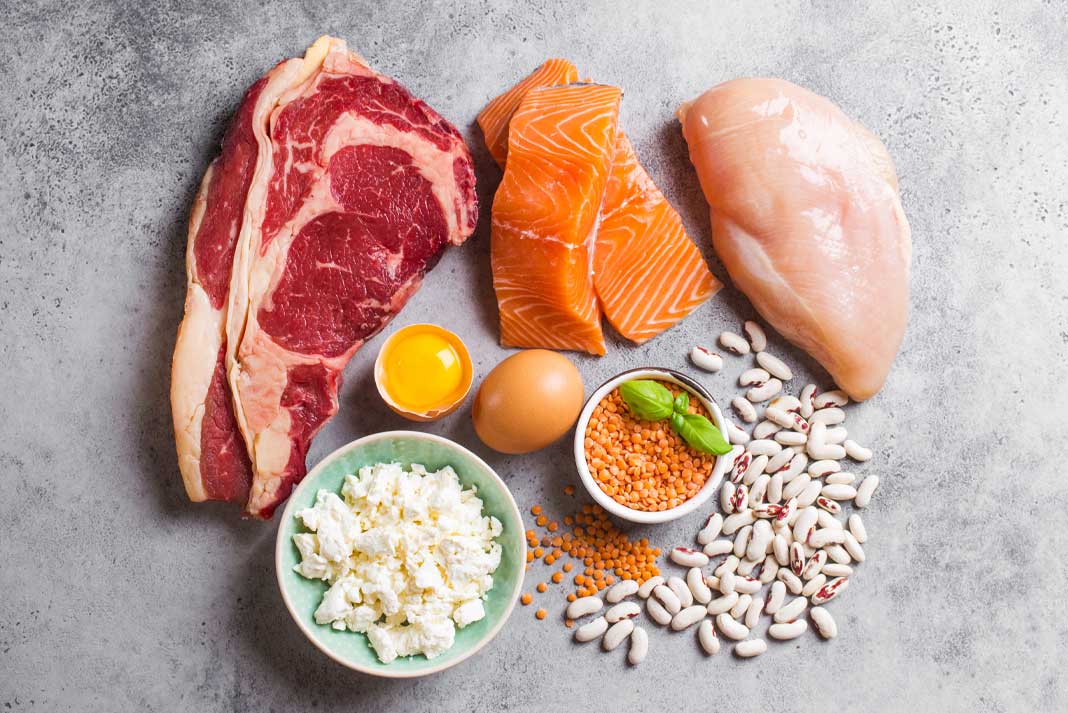When it comes to muscle growth and recovery, protein has long been the macronutrient of choice for athletes, fitness enthusiasts, and bodybuilders.
But is protein the best for muscle gain? Let’s dive into the science behind protein and its role in muscle development.
The Role of Protein in Muscle Gain
Proteins are large molecules made up of smaller building blocks known as amino acids. Our bodies need these amino acids to build and repair tissues, including muscles. When you consume protein, your body breaks it down into its component amino acids, which are then used to construct new proteins needed for muscle growth and repair.
The process of muscle gain involves creating microscopic damage to muscle fibers during exercise, particularly resistance and strength training. This triggers the body to repair and rebuild the damaged fibers, leading to an increase in muscle size and strength. For this repair and rebuilding process, the body needs a sufficient amount of protein.
Our Top Protein Power Picks
How Much Protein Do You Need?
While protein is essential for muscle gain, it doesn’t mean the more you consume, the faster you’ll grow muscles. The Recommended Dietary Allowance (RDA) for protein is 46 grams per day for women and 56 grams per day for men. However, if you’re actively trying to gain muscle, experts suggest consuming around 1.6 to 2.2 grams of protein per kilogram of body weight.
It’s also important to distribute your protein intake evenly throughout the day, as our bodies can only utilize a certain amount of protein at a time. Consuming protein-rich meals and snacks every 3-4 hours is a common recommendation.
Quality Matters
Not all proteins are created equal. Some sources of protein are more ‘complete’ than others, meaning they provide all the essential amino acids our bodies need. Animal-based proteins like meat, fish, eggs, and dairy are complete proteins. Plant-based proteins, on the other hand, often lack one or more essential amino acids. However, by combining different plant proteins (like rice and beans), you can get all the essential amino acids.
The Role of Other Nutrients
While protein plays a crucial role in muscle gain, it’s not the only important nutrient. Carbohydrates provide the energy needed for your workouts, while fats are essential for hormone production and nutrient absorption. A balanced diet that includes all macronutrients—protein, carbs, and fats—is necessary for optimal muscle gain.
Conclusion
In conclusion, protein is indeed vital for muscle gain, but it’s not the sole factor. The right balance of all macronutrients, a well-designed workout routine, adequate rest, and a healthy lifestyle are equally important. Always remember to consult with a healthcare professional or a registered dietitian before making significant changes to your diet or workout routine.
: Harvard Health Publishing. “The Hidden Dangers of Protein Powders.”
: American Council on Exercise. “How Does Resistance Training Rank in Terms of Safety?”
: U.S. Department of Health & Human Services. “Dietary Guidelines for Americans.”
: International Society of Sports Nutrition. “Protein and exercise.”
: Nutrition.org. “Protein pacing from food or supplementation improves physical performance in overweight adults.”
: Harvard Health Publishing. “Plant-based diets are best… or are they?”











